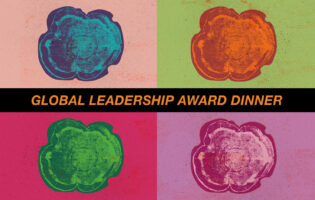
Documenting German and Japanese War Crimes prior to 1945: The UN War Crimes Commission

Annie Chen
Research Intern
Ms. Annie Chen is a research intern at AICGS for the fall of 2017. She contributes to the AICGS Notizen Blog, supports resident fellows with their research projects, manages databases, and helps organize and document AICGS events.
Ms. Chen recently completed her BA at the University of Toronto, with dual majors in Political Science and Criminology. Her research interests lie in Transatlantic Relations and International Security, particularly with issues related to the proliferation of weapons of mass destruction. She also enjoys reading German literature and philosophy.
Prior to joining AICGS, Ms. Chen conducted research in Mexico City, where she investigated the impact of the Mexican security crisis on cross-border migration patterns. She hopes to pursue graduate studies in the field of International Relations.
Dan Plesch’s new book, Human Rights after Hitler: The Lost History of Prosecuting Axis War Crimes, sheds light on the existence of a little-known agency founded amid the atrocities of World War II: the United Nations War Crimes Commission (UNWCC). Predating Nuremberg, the Rwandan tribunals, and Yugoslavia and the International Criminal Court, the UNWCC identified, classified, and assisted national governments with the trial of war criminals in Europe and Asia from 1943 until its end in 1948. Plesch draws upon forgotten archival documents to reveal the prosecution of war criminals long before conventional wisdom attributes the establishment of human rights jurisprudence.
In early 1942 and at the height of the war, the exiled Polish government and China were already urging the formation of new international laws and a body to administer the punishment of war crimes. To this end, a commission comprised of representatives from the United Kingdom, the United States, the exiled continental European governments, China, and India, was set up to investigate and bring justice to crimes against humanity. Of immense scope, the commission dealt with 36,000 cases and resulted in over 2,000 indictments. Among its many trials, the commission oversaw charges against Hitler and perpetrators of the Holocaust, as well those against Japanese war criminals. In this sense, the UNWCC was an important—yet, often overlooked—predecessor to Nuremburg.
Plesch further examines the UNWCC through the U.S. perspective by observing the administration’s divided internal dynamics and disparate attitudes on the issue of accountability in war crimes. Efforts led by Herbert Pell toward the institution of an international court, which would hold authority over Nazi crimes, was hindered by American leaders who were concerned about its implications for domestic lynching practices. The ambivalence of the American administration and anxieties of the ensuing communist threat (demanding the quick recovery of Germany and Japan), ultimately led to the discharge of many SS men.
That the condemnation of Nazi war crimes was well-established prior to the end of the war challenges allegations of “victors’ justice” and reinforces the case for a universal understanding of human rights. Plesch’s research is significant not only for its contribution to patching together a historically accurate narrative of twenty-first century human rights, but is also noteworthy for its revelations on the substantial engagement of Asian countries in early human rights discourse. Evidence for the strong involvement of non-Western powers in the UNWCC puts in dispute criticisms of human rights as a form of Western imperialism.
Considering the amount of time that it has taken for the UN records to surface, Plesch’s study also engages wider concerns regarding the accessibility of information. Despite having to overcome enormous hurdles to accessing the UNWCC files, Plesch insists that they will go a long way in providing alternative models for contemporary multilateral and collaborative practices, enlightening ongoing debates in postwar justice, and contributing to the prevention of future abuses.
Directly access the UNWCC Human Rights Reports
AGI and Asia Policy Point hosted Dan Plesch for an event, “Documenting German and Japanese War Crimes prior to 1945,” on September 12, 2017.








